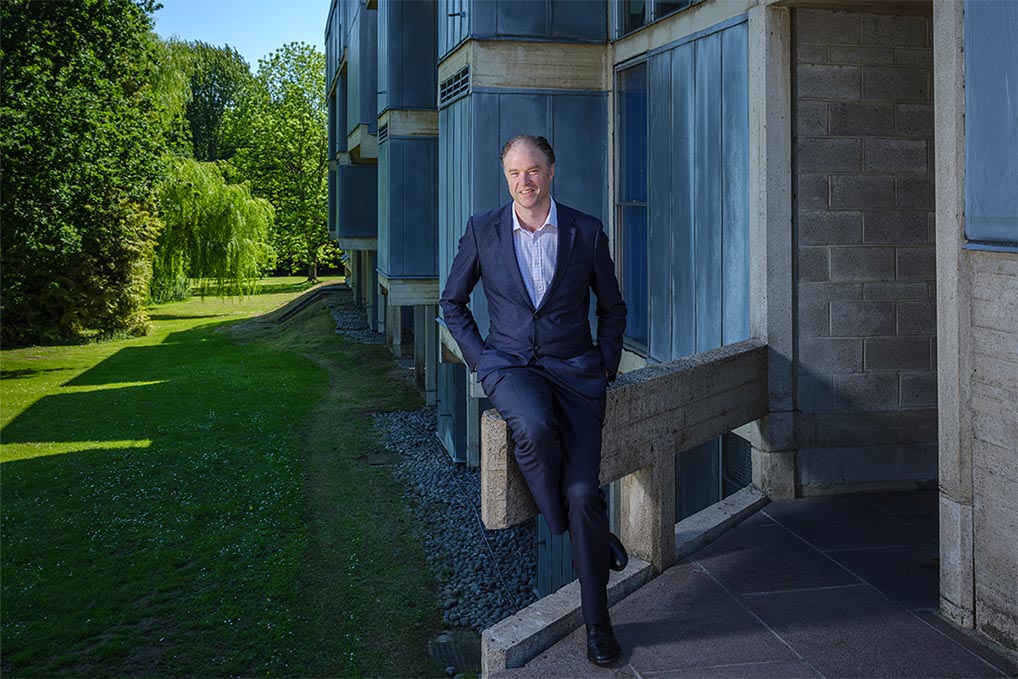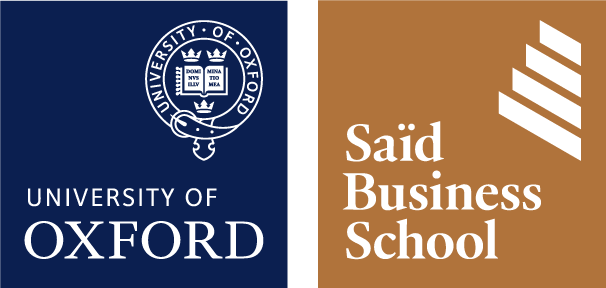Viewpoint
Andrew WhiteMany corporate breakthroughs have been founded on accepting doubts, confronting the problems they generate, and finding solutions
At Saïd Business School Executive Education, we are acutely aware that the world is on the cusp of great change in the way that companies must be run.
This holds true across a range of industries. Banks have seen a major reduction of trust from the public and regulators following a wave of scandals over misselling, market manipulation and, in some cases, leadership and management incompetence.
The world is on the cusp of great change in the way that companies must be run. This holds true across a range of industries
Rapid growth in obesity, diabetes and other lifestyle diseases has confirmed to us that breakthroughs in pharmaceuticals and healthcare advances are not in themselves enough to resolve public health problems; the food and drink sector must also do better in addressing these problems – or there is a very high risk governments will ask them to pick up the healthcare costs like the tobacco industry.
Other generic issues affect most other industries, too. For example, public disquiet over the widening gaps between rich and poor generates so many different issues for companies to consider. It has led to complaints about executive pay, and to business uncertainty caused by major changes in political structures, for example Brexit and the election of Donald Trump as US President. It has prompted calls for curbs to free trade that could hit businesses’ global supply chains and force a rethink of companies’ export-led growth models. Most urgently of all, fears over global warming make structural change essential for every industry – not just energy companies, but every business that uses fossil fuels.
This is all forcing a rapid change in the role of CEOs. Our research published in The CEO Report reveals that 75 per cent of CEOs think their role has altered; a further 14 per cent think, even though their role has not altered, the way they perform it has.

Portrait: Peter Searle
One of the great changes is that CEOs and other executives have to deal with a number of paradoxes.
When corporate practice starts to diverge from regulatory frameworks and public values, profits and company share prices will eventually suffer’
At one level, it makes business sense to concentrate single-mindedly on growing sales and expanding into new markets: to sell more fizzy drinks, alcohol and processed foods, or see oil consumption rise. In other words, execute more from the current business model. But at another level, it makes very little sense. When corporate practice starts to diverge from the regulatory frameworks and the public’s values, corporate profits and company share prices will eventually suffer. In addition, many industries are being disrupted or face the threat of disruption like never before in recent history.
This will mean a radical examination and change of the current business model. Such paradoxes create uncertainties. I believe that executive education, and in particular, Saïd Business School Executive Education, enables leaders to deal with these uncertainties. Our collaboration with Ricoh Europe on the Future of Work Customer Advisory Board is one example of how we are creating a community of Executive Education thought leadership to respond to these uncertainties.
We are taking findings from The CEO Report and turning them into experiential teaching sessions – and we have created workshops to help executive teams understand their companies’ purpose and what it means to implement this.
Many industries are being disrupted or face the threat of disruption like never before… this will mean a radical examination and change of model
Immersion by large corporate teams is the experience provided by Saïd Business School through Custom Executive Education, which is extremely productive at developing leaders and helping them think about their strategic challenges. But it is also sometimes good for executives to escape the corporate fish tank and be absorbed into a larger pool of people from the same industry or who face similar leadership challenges on one of our Open Programmes.
This is where Saïd Business School Executive Education comes into its own. Participants in executive education courses run by other organisations will meet many people, but not the wide variety that they will when at Oxford Saïd. Here they will interact with an impressive range of faculty researching and teaching a wide range of disciplines, including some who might disagree with them about fundamental notions and bring new perspectives to the way that they lead and manage. Some of our cutting-edge work includes how to use scenarios to test strategic assumptions, understanding how to gain higher levels of strategic alignment, how to increase the success of management projects and what it means to deliver shareholder returns in today’s complex and uncertain world.
Our cutting-edge work includes how to use scenarios to test strategic assumptions and understanding how to gain higher levels of alignment
They will also be taught by academics from outside the School but inside the University, who are expert in fields that are often not present on executive education programmes in other institutions. These bring vital perspectives from the humanities and sciences, and disciplines such as philosophy and ethics. Participants learn, too, from each other – and even do deals with each other – as well as from their teachers. An oil company executive may encounter an environmentalist who opposes fossil fuel use; a food company executive may debate with a public health expert who thinks food companies can do better; an executive at a multinational may meet a politics academic or participant who can argue persuasively that multinationals are not doing enough to make societies better in countries where they do business.
Corporate executives are often portrayed as people who need certainties in order to succeed, and for their companies to succeed. However, any form of education that sows a few doubts in their mind, because of the different perspectives offered by our faculty and fellow participants, serves a great purpose.
Many corporate breakthroughs have been founded on accepting doubts, confronting the problems they generate, and finding solutions
Many corporate breakthroughs have been founded on accepting such doubts, confronting the problems they generate, and finding solutions. Take the case of Unilever, whose CEO Paul Polman has told shareholders to sell their stakes in the company if they do not agree with his decision to stop giving quarterly results and focus on the long-term creation of value that is ‘equitable, shared and sustainable’. This includes sourcing its raw materials using environmental, social and ethical principles.
Food company Mars has agreed new labelling that will indicate how often people are recommended to consume each product, based on the principle of restoring the body to balance between meals.
It should go without saying that if executives need to change the way they do business, so too must executive education programmes. More than ever before, Oxford Saïd has to help its Executive Education participants to consider ethical, environmental and social issues bearing on business, as well as ongoing competitive challenges, economies of scale and the significant importance of shareholder returns. Fundamentally, how paradoxes can be transcended.
It should also go without saying that facing these challenges is not easy. What we provide is a place for the leaders of the 21st century to be developed – and continuing this University’s 800-year-long track record of producing leaders.
